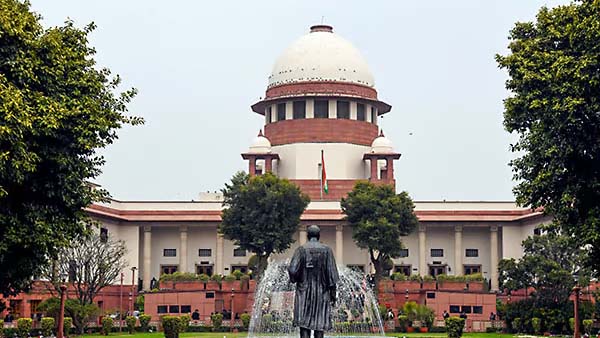The Supreme Court, on Friday, refrained from directing the Election Commission of India (ECI) to immediately disclose authenticated voter turnout records. This decision follows allegations of delays in publishing data for the initial phases of the ongoing general election.
A judicial panel consisting of Justices Dipankar Datta and Satish Chandra Sharma communicated to senior advocate Dushyant Dave, representing the Association for Democratic Reforms (ADR), that the court is disinclined to entertain the NGO’s plea. The application sought the disclosure of final authenticated voter turnout data across all polling stations, including the number of votes cast in the Lok Sabha Elections 2024, within 48 hours of voting. The NGO also requested a directive for the Election Commission of India to reveal Form 17C, which details the record of votes polled.
The bench noted that they were not inclined to grant any interim relief as the NGO’s 2024 application contains a prayer similar to one made in a 2019 petition. The apex court has slated the matter for further discussion post the summer recess.
The justices remarked that granting interim relief would essentially be tantamount to providing the final relief sought in the 2019 petition. Justice Datta further asserted that the application could only be considered after the elections, emphasizing that intervening during the election process would be inappropriate, stating, “In between elections, hands off! We cannot interrupt, we are also responsible citizens.”
Senior advocate Maninder Singh represented the ECI before the Supreme Court. In its affidavit, the ECI argued that a comprehensive disclosure of Form 17C could lead to manipulative actions and undermine the electoral process. The Commission stressed that posting such information publicly could increase the risk of image alteration, leading to widespread public distrust in the electoral system.
The affidavit, submitted by the ECI’s director of law, highlighted that in tightly contested elections, the margin of victory can be very narrow. Publicly disclosing Form 17C could confuse voters about the total votes cast, as this figure includes both Form 17C votes and postal ballots. The document warned that this lack of clarity could be exploited by individuals with vested interests to question the integrity of the electoral process.
Moreover, the affidavit emphasized that acceding to the petitioner’s demands could cause disarray within the electoral machinery, which is already operating under the pressures of the ongoing general election.
ADR’s application pointed out, “The protracted delay in releasing final voter turnout data, coupled with the unusually high revisions (over 5%) in the ECI’s press note of April 30, 2024, and the absence of detailed constituency and polling station figures, has engendered concerns and public skepticism regarding the accuracy of the data.”
The application noted that the data published in the press release on April 30 (Phase I voter turnout at 66.14% and Phase II at 66.71%) showed a significant increase of nearly 6% for Phase I and approximately 5.75% for Phase II compared to the initial data of April 19 and April 26, respectively.




